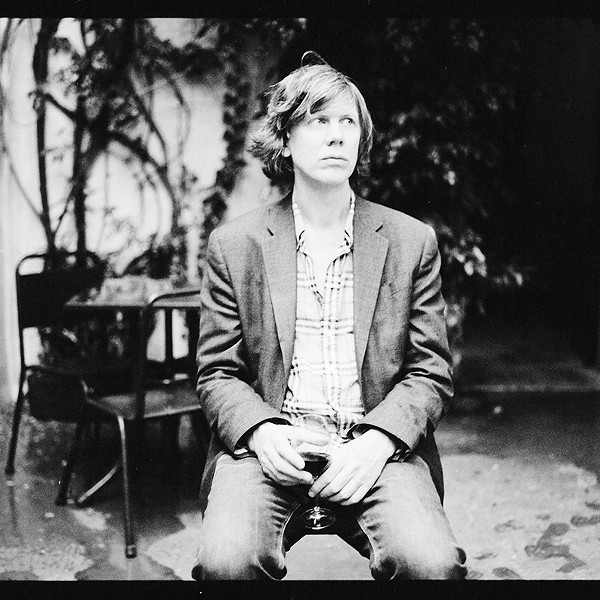The idea for Ladysmith Black Mambazo came to its founding leader, Joseph Shabalala, in his sleep. In 1964 the South African singer formed the traditional male choral group as a way to emulate the sounds of the Zulu isicathamiya harmonies he’d experienced in a recurring dream, adding younger vocalists to the earlier group he’d been leading and renaming it for his hometown of Ladysmith; the black ox, regionally regarded as the strongest farm animal; and the mambazo or “axe,” a reference to the group’s ability to “chop down” competitors at singing contests. The last part of the moniker proved prophetic: In short order Ladysmith Black Mambazo found themselves being barred from competing in such tournaments, simply because they were winning them all; soon, the ensemble was showing up at the events just to perform.
Their popularity continued to rise, eventually reaching the ears of Paul Simon, who enlisted them to sing on his 1986 album Graceland. The disc was a worldwide smash, selling over 16 million copies and making Ladysmith Black Mambazo a global success along the way. Although Shabalala died in 2020, the group continues to tour and record. Ladysmith Black Mambazo will perform at the Colony in Woodstock on February 22 at 8pm. Tickets are $40-$75. Group member Albert Mazibuko answered the questions below by email.
—Peter Aaron
Recently, the group has been releasing albums of live concert recordings made during its 30-plus years of touring the world. What has it been like for the members to go back and listen to these recordings? What kinds of thoughts and feelings come to you as you reflect on these past performances?
It is quite a surprise at how moving it is for us to listen to these old concerts. Very moving and emotional. To hear how we’ve grown over the years and decades is very good to hear as well. Plus, the concerts from the 1980s have members who have passed away, so hearing their voices brings back very beautiful memories. We’re very happy that we can hear these older concerts.
Over the years, Ladysmith Black Mambazo has had many great collaborations, most famously of course with Paul Simon. In 2006, you sang with the great Pete Seeger, a very well-loved resident of our area who, as a member of the folk group the Weavers, helped to make South African singer Solomon Linda’s song “Mbube” famous around the world when he recorded it as “Wimoweh” in 1951 (the song was also a hit in 1961 when the Tokens recorded it as “The Lion Sleeps Tonight”). What was it like to meet and work with Pete Seeger?
Pete was a huge fan of ours. It was a blessing to know him. He would come to our concerts when we were in the Hudson Valley area. He was remarkable and we miss him quite a bit. His enthusiasm and love of music from other parts of the world was deep and real. We learned so much from him about the history of music.
It’s been four years since Joseph Shabalala passed away. What are some important lessons that he imparted to you about continuing to make music with the group before he passed?
Joseph always said he wanted Ladysmith Black Mambazo to be about the music and tradition and not about him. It was a dream for him to retire and hand the group to his sons to continue. Joseph always told us it was important to stay true to the tradition. We certainly collaborated with other artists, but we tried to stay true to what we do within other’s music. Stay true to the tradition. That’s the most important lesson we learned from Joseph Shabalala.
One of the styles of music that your group is most known for singing, isicathamiya, developed within the harsh conditions faced by Black miners in South Africa, and Ladysmith Black Mambazo’s members and families have themselves experienced very dark and difficult times. Somehow, though, the group’s music is always beautiful and quite often very happy and positive-feeling. Why do think this is the case?
It’s important to find a place within your own mind to have happiness and peace. It doesn’t matter if you are poor or if you are rich. You need to balance the bad with something good, something beautiful. That’s what we always wanted to be part of. In South Africa and its difficult history, we wanted to be something positive and beautiful for our fans. When we started traveling to other parts of the world, we would meet people with problems of their own, not so different than South Africans. Music was, is, and will always be a soothing source of peace. Always. We’re so happy we can bring that to some people.
What do you most hope audiences feel and experience when they come to see you perform?
We certainly hope that our audience members find peace and something that they can take with them and keep special. We want them to learn of our South African traditional music and how important it is. How traditional music, whether it’s from South Africa, the US, or anywhere else, is something important. It’s music close to the people. Something that usually has developed over decades and centuries. It’s music that needs to be shared and kept alive. When we perform, we feel we are keeping our tradition alive and the audience is sharing in that with us and for us. We hope for a magical experience for our audience.


















